Exploring the Healing Effect of Pottery Creation
In a world that often feels chaotic and overwhelming, finding a sanctuary for mental peace is crucial. Pottery creation stands out as a unique and transformative form of therapy that not only engages the hands but also nurtures the mind and soul. Imagine kneading a lump of clay, feeling its cool, moist texture between your fingers, and letting your thoughts drift away. This therapeutic journey through pottery is not just about making beautiful objects; it’s about fostering mental wellness, emotional expression, and a deep sense of mindfulness.
When you dive into the world of pottery, you embark on a journey filled with relaxation and focus. The simple act of shaping clay can be incredibly calming, almost like a meditative practice. As you mold the clay, your mind begins to quiet, allowing stress to melt away. Studies have shown that engaging in creative activities can significantly lower anxiety levels and improve overall well-being. Pottery creation acts as a mental escape, providing a much-needed break from daily pressures. The tactile nature of working with clay can also stimulate the senses, enhancing feelings of tranquility and grounding.
Pottery is much more than just an art form; it’s a gateway to mindfulness. Each moment spent with clay encourages you to be present, to focus on the here and now. As you manipulate the clay, you may find yourself slipping into a meditative state, where the outside world fades away. This immersive experience allows individuals to connect deeply with their emotions and thoughts. The act of creating pottery can serve as a form of meditation, helping to clear the mind and enhance awareness of your surroundings. In this way, pottery becomes a tool for self-discovery and reflection.
Engaging in pottery is a fantastic way to unlock your creative potential. The process of shaping and forming clay offers an outlet for self-expression, allowing you to communicate feelings and ideas that might be difficult to articulate with words. This creative engagement not only boosts self-esteem but also fosters personal growth. As you experiment with different techniques and designs, you may discover new aspects of yourself that were previously hidden. The journey of pottery creation can transform your understanding of creativity, making it a powerful catalyst for emotional healing.
One of the most profound benefits of working with clay is its ability to facilitate emotional release. The physical act of shaping and molding can help individuals process their feelings in a constructive manner. Whether you're feeling joy, sadness, anger, or frustration, clay becomes a safe medium to express those emotions. As you push, pull, and reshape the clay, you might find that your emotions flow freely, leading to a sense of relief and clarity. This cathartic experience can be incredibly healing, allowing you to confront and understand your feelings better.
Joining pottery classes can significantly enhance the therapeutic experience by fostering a sense of community and connection. In these classes, individuals come together to share their love for pottery, creating a supportive environment that promotes emotional well-being. The shared experiences of learning and creating can strengthen bonds among participants, leading to lasting friendships. The social aspect of pottery classes can be just as healing as the act of creating itself, offering a network of support and understanding.
Pottery classes provide unique opportunities for individuals to connect through shared creativity. Collaborative projects, such as group sculptures or communal pottery pieces, can strengthen relationships and cultivate a sense of belonging. Imagine working side by side with someone, both of you immersed in the creative process, sharing laughter and ideas. These interactions not only enhance the artistic experience but also build lasting friendships that extend beyond the studio.
Pottery studios are often designed to be welcoming and encouraging spaces. The atmosphere of collaboration and support can significantly enhance the healing process for participants. In such environments, individuals feel free to express themselves without fear of judgment. This sense of safety can lead to greater exploration of creativity and deeper emotional connections with others. The community aspect of pottery is vital, as it reinforces the idea that you are not alone on your journey of self-discovery and healing.
Pottery allows for personal expression through design and form, serving as a canvas for emotions and thoughts. Each piece created tells a story, reflecting the creator's inner world. This form of mindful expression promotes introspection, encouraging individuals to explore their feelings and experiences. As you shape your clay, consider what it represents for you—perhaps it’s a moment of joy, a memory of loss, or a dream yet to be realized. Through pottery, you can communicate your emotions in a tangible way, leading to greater understanding and acceptance of yourself.
- What are the benefits of pottery for mental health? Pottery can reduce stress, enhance mindfulness, and provide a creative outlet for emotional expression.
- Do I need prior experience to join a pottery class? No, pottery classes are designed for all skill levels, from beginners to advanced artists.
- How does pottery promote mindfulness? The tactile nature of working with clay encourages focus and presence, allowing for a meditative experience.
- Can pottery help with emotional healing? Yes, the process of shaping clay can facilitate emotional release and help individuals process their feelings constructively.

The Therapeutic Benefits of Pottery
Pottery creation offers a unique form of therapy that is both engaging and rewarding. When you sit down at a pottery wheel or start molding clay with your hands, something magical happens. The act of shaping clay can be incredibly therapeutic, promoting relaxation and focus. This process allows you to escape from the hustle and bustle of everyday life, providing a much-needed break from stress and anxiety. Imagine the feeling of your fingers sinking into the cool, soft clay, as you let go of your worries and immerse yourself in the creative process.
Engaging in pottery can significantly alleviate stress, acting as a form of mindfulness. When you're focused on the task at hand—whether it's centering the clay, pulling up the walls of a pot, or adding intricate details to your creation—your mind has no room for the distractions that often plague us. This focus not only calms the mind but also enhances overall well-being. Research shows that engaging in creative activities like pottery can lower cortisol levels, which is the hormone associated with stress. By channeling your energy into something constructive, you can experience a profound sense of relief and accomplishment.
Moreover, pottery can be a powerful tool for emotional expression. The process of creating can serve as a release for pent-up feelings. As you knead and shape the clay, you might find yourself reflecting on personal experiences, emotions, or challenges. This connection between the hands and the heart is what makes pottery such a unique form of therapy. You might even find that the shapes and forms you create mirror your internal state, allowing for a deeper understanding of yourself.
To illustrate the therapeutic benefits of pottery, consider the following key points:
- Stress Relief: The tactile nature of clay can lower stress levels and promote relaxation.
- Mindfulness: Pottery encourages being present in the moment, enhancing focus and awareness.
- Emotional Expression: Working with clay allows for the processing of emotions in a constructive manner.
- Creativity Boost: Engaging in pottery stimulates creative thinking, which can improve problem-solving skills.
In summary, the therapeutic benefits of pottery extend far beyond the physical act of creating. It serves as a powerful outlet for stress relief, emotional processing, and self-expression. Whether you are a beginner or an experienced potter, the journey of working with clay can lead to profound personal growth and mental wellness. So, why not give it a try? Grab some clay, and let your hands do the talking!
Q: Can pottery really help with stress relief?
A: Yes! Engaging in pottery can significantly reduce stress levels by providing a creative outlet and promoting mindfulness.
Q: Do I need any prior experience to start pottery?
A: Absolutely not! Pottery is accessible to everyone, and many classes cater to beginners.
Q: How does pottery encourage emotional expression?
A: The process of shaping clay allows individuals to channel their feelings and experiences into their creations, facilitating emotional release.
Q: What are the social benefits of pottery classes?
A: Pottery classes foster community and connection, providing opportunities to build friendships and support networks through shared creativity.
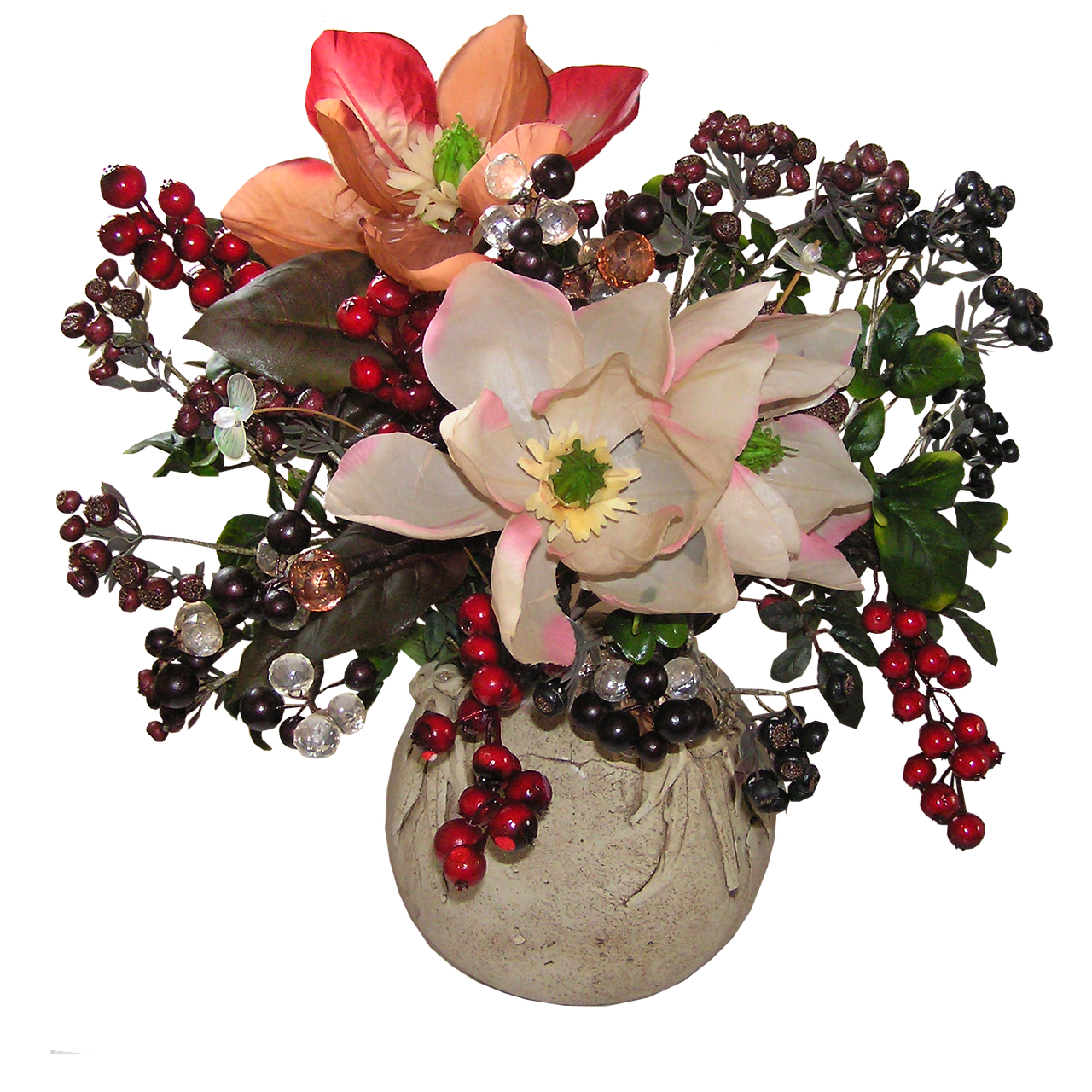
The Mindfulness Aspect of Pottery
Engaging in pottery is not merely about creating beautiful objects; it is a profound journey into mindfulness. When you sit at a pottery wheel or knead a lump of clay in your hands, the world around you fades away, leaving only the present moment. This tactile experience is akin to meditation, where the repetitive motions of shaping and molding clay can lead to a serene state of mind. Just think about it: how often do we find ourselves lost in thought, worrying about the future or ruminating on the past? Pottery offers a refreshing escape from this mental chatter, allowing us to immerse ourselves in the here and now.
The act of working with clay encourages a deep sense of awareness. As you feel the texture of the clay, you become attuned to its temperature, moisture, and pliability. This sensory engagement is crucial; it pulls you out of your head and grounds you in your body. Each pinch, roll, and pull of the clay invites you to focus on the sensations at hand, creating a powerful connection between mind and body. It's a form of yoga for your hands! In this way, pottery can be a form of active meditation, where the process itself becomes a pathway to inner peace.
Moreover, pottery creation can serve as a visual manifestation of your thoughts and feelings. Each piece you create tells a story, reflecting your emotional state at that moment. This can be particularly therapeutic when you're navigating through turbulent times. As you shape the clay, you might find that you’re also shaping your emotions. The act of creating becomes a form of emotional release, allowing you to express feelings that may be difficult to articulate verbally. Imagine taking a frustration and channeling it into a powerful sculpture—what a liberating experience!
To illustrate the mindfulness benefits of pottery, let’s consider some key aspects:
- Focus on the Process: The journey of making pottery is as important as the final product. Emphasizing the process can help you appreciate the small victories along the way.
- Breathing and Rhythm: The rhythmic motions involved in pottery can help regulate your breathing, promoting relaxation and calm.
- Presence in Creation: Each piece of pottery is unique, just like your experiences. This uniqueness encourages you to embrace imperfections and celebrate individuality.
In conclusion, the mindfulness aspect of pottery creation is a powerful tool for enhancing mental wellness. It encourages individuals to slow down, be present, and engage with their emotions in a constructive manner. Whether you’re a seasoned potter or a curious beginner, the act of molding clay can provide a sanctuary for your mind and spirit, allowing you to explore the depths of your creativity while fostering a profound sense of peace. So, why not give it a try? You might just find that your next masterpiece is not only a work of art but also a pathway to mindfulness.
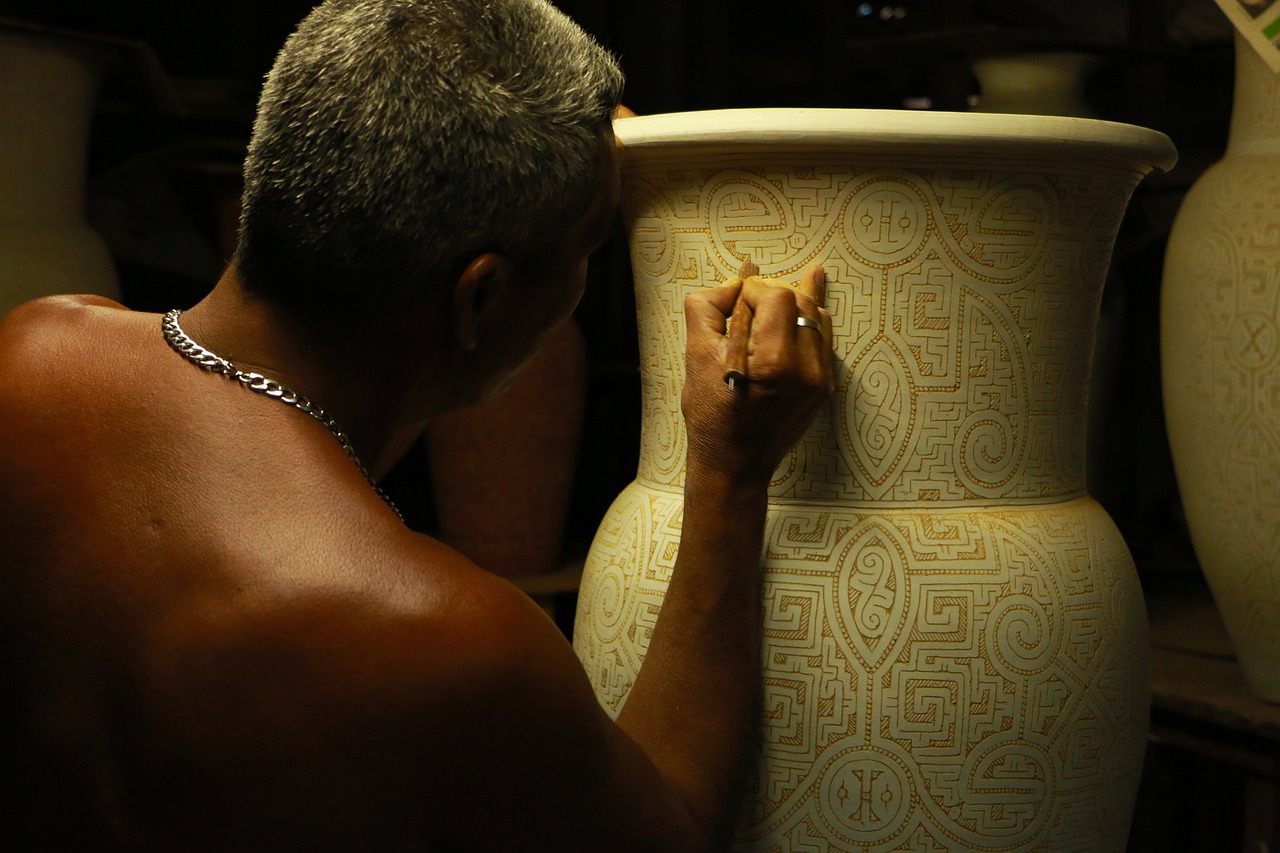
Engaging in pottery is like opening a door to a world where your imagination can run wild. Have you ever felt that rush of excitement when you create something entirely from scratch? Pottery offers that thrill and more. The process of molding clay allows individuals to tap into their innate creativity, providing a canvas for self-expression that is both liberating and fulfilling. It’s not just about shaping a lump of clay into a vase or a bowl; it’s about expressing who you are, your thoughts, and your feelings in a tangible form.
When you sit at the pottery wheel, you enter a state of flow where time seems to stand still. This state of being can be incredibly empowering, as it encourages you to let go of self-doubt and embrace your creative instincts. The tactile nature of clay stimulates your senses, making you more aware of the present moment. Each touch, each roll, and each shape you create is a step further into your own creative journey. It's like dancing with the clay, where every movement is an expression of your inner self.
Moreover, pottery can significantly boost your self-esteem. Each completed piece serves as a reminder of your capabilities. The beauty of pottery lies in its imperfections; no two pieces are alike, just like us. This uniqueness allows you to appreciate your work for what it is, rather than comparing it to others. You learn to celebrate your individuality and recognize that your creative voice is valid and worthy of expression.
In pottery, the act of creation becomes a form of personal growth. As you experiment with different techniques, colors, and forms, you also discover more about yourself. Perhaps you find that you have a knack for intricate designs, or maybe you prefer the simplicity of minimalism. Each piece you create is a reflection of your evolving identity, showcasing your journey through creativity. This process can lead to profound insights about who you are and what you value.
Additionally, pottery serves as a wonderful metaphor for life. Just as clay can be reshaped and transformed, so can we. The act of kneading and molding clay can mirror our own experiences of struggle and resilience. It teaches us that even when things don’t go as planned, we have the power to start anew. In this way, pottery not only connects us with our creativity but also helps us navigate the complexities of our emotions and experiences.
So, the next time you find yourself at a pottery wheel, remember that you are not just creating art; you are connecting with a deeper part of yourself. Embrace the journey, celebrate your creativity, and let the clay guide you to new heights of self-discovery.
- What materials do I need to start pottery? You will need clay, a pottery wheel (if you want to throw), tools for shaping, and a kiln for firing your pieces.
- Can pottery help with stress relief? Yes! The tactile nature of working with clay can be incredibly calming and meditative.
- Do I need to have experience to join a pottery class? Not at all! Pottery classes often cater to all skill levels, from beginners to advanced.
- How long does it take to create a pottery piece? It varies depending on the complexity of the piece, but generally, it can take several hours to days, including drying and firing time.
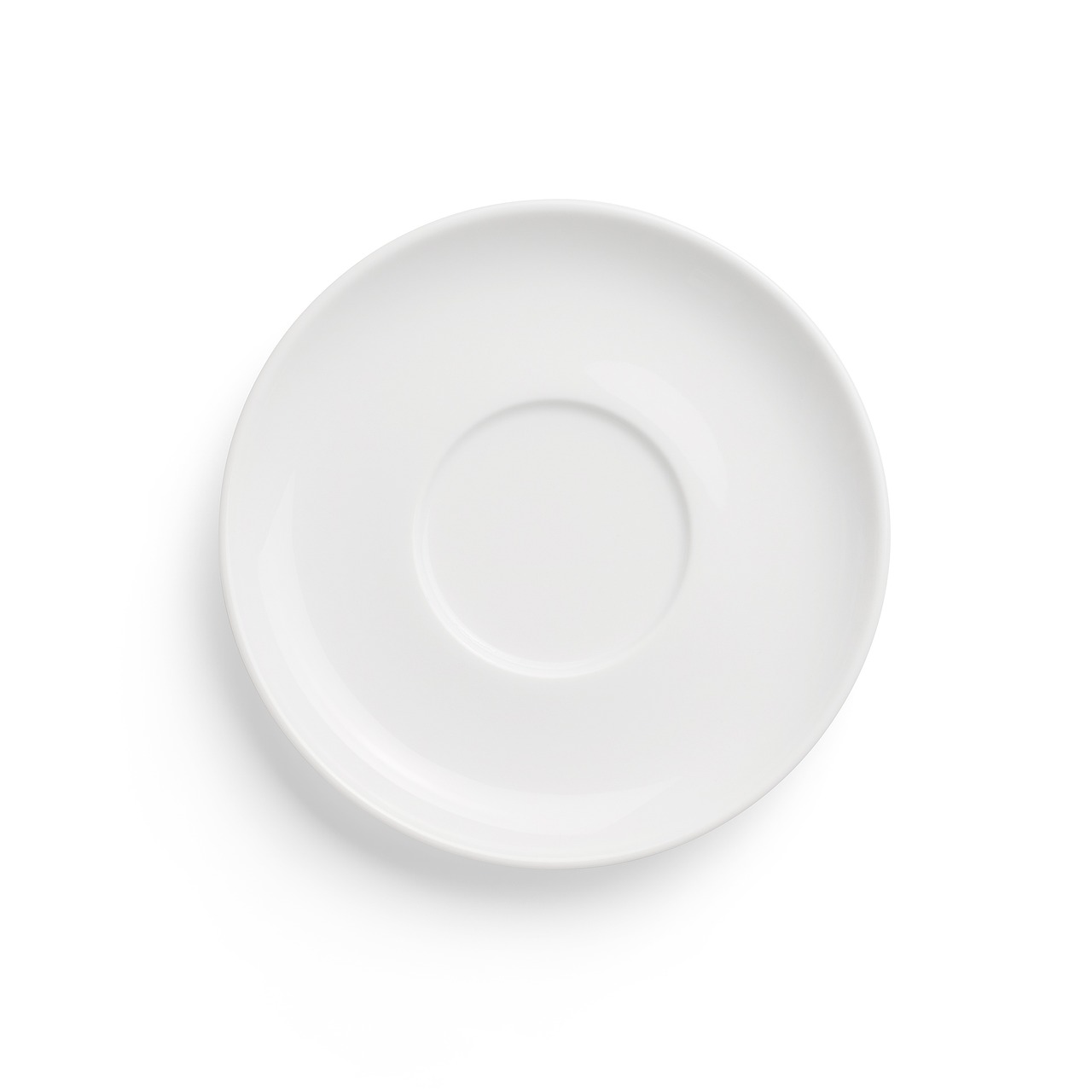
Working with clay can be a powerful emotional release. Imagine molding a lump of clay with your hands; it’s not just about creating a vessel or a sculpture, but about transforming your feelings into something tangible. As you knead the clay, it’s almost as if you’re kneading your worries, stress, and pent-up emotions away. The tactile sensation of the cool, soft clay can be incredibly grounding, providing a sense of calm and focus that many people find hard to achieve in their daily lives.
The act of shaping, pinching, and rolling clay can serve as a metaphor for life itself. Just as you can manipulate clay into various forms, you can also reshape your thoughts and emotions. This process can be particularly therapeutic for individuals dealing with anxiety, depression, or trauma. By engaging in pottery, you create a safe space to explore your feelings without the fear of judgment. It’s a form of self-therapy that allows you to express what might be difficult to articulate with words.
Many people find that the repetitive motions involved in pottery can lead to a meditative state. This state of flow can help in processing emotions and experiences, allowing for deep introspection. As your hands work the clay, your mind may wander, reflecting on past experiences or current challenges. This natural form of emotional release can lead to significant breakthroughs in understanding oneself and one's feelings.
Furthermore, the process of creating pottery can serve as a cathartic experience. When you finally finish a piece, there’s a sense of accomplishment that comes with it. You’re not just left with a physical object; you’re left with a representation of your emotional journey. Each piece tells a story—your story—making the act of creation not only therapeutic but also deeply personal and meaningful.
In pottery, the imperfections in your work can mirror the imperfections in life. Embracing these flaws can be a liberating experience, allowing you to accept your own vulnerabilities. This acceptance can lead to a healthier relationship with your emotions, promoting healing and growth. As you continue to work with clay, you may find that you’re not just crafting objects, but also crafting a better understanding of yourself.
In summary, pottery isn’t merely an artistic endeavor; it’s a profound journey of emotional exploration and release. The connection between the creator and the medium—between you and the clay—can facilitate a deeper understanding of your feelings, paving the way for healing and personal growth. So, the next time you find yourself feeling overwhelmed, consider reaching for some clay. You might just find that it’s the perfect outlet for your emotions.
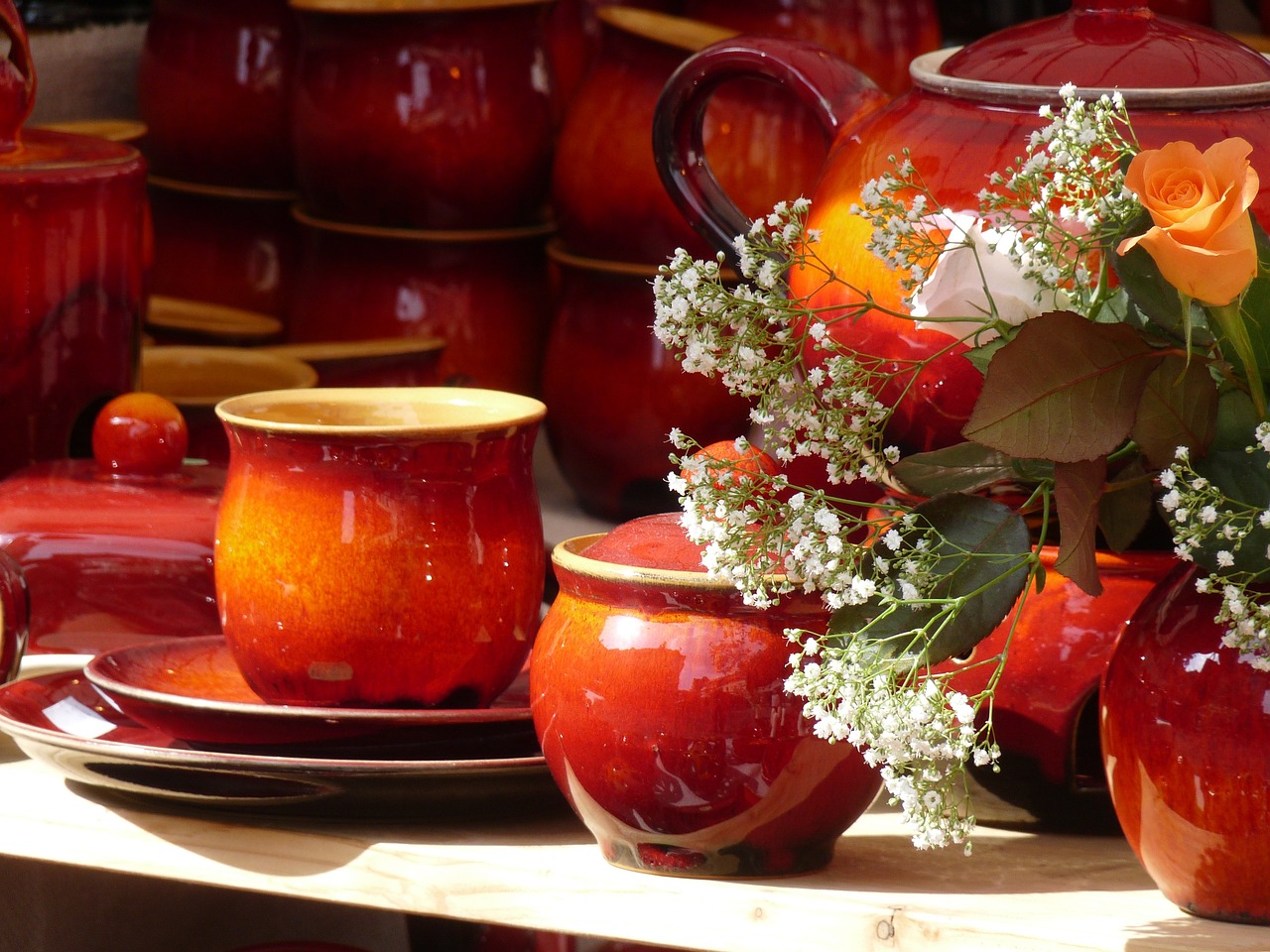
Community and Connection in Pottery Classes
Participating in pottery classes is not just about learning to shape clay; it's about building a community and forging connections that can last a lifetime. Imagine walking into a studio filled with the earthy smell of clay and the sound of laughter echoing off the walls. This vibrant atmosphere invites you to not only create but also to connect with others who share your passion for pottery. Here, friendships blossom as easily as the pots you mold, each person bringing their unique story and perspective to the table.
In pottery classes, the act of creating together fosters a sense of belonging. When you’re surrounded by fellow artists, you quickly realize that everyone is on their own journey, yet you’re all united by a common thread—the love for this ancient art form. As you knead the clay and shape it into something beautiful, you’re also shaping bonds with those around you. The shared experience of learning new techniques, overcoming challenges, and celebrating each other’s successes creates a supportive environment that nurtures not just your artistic skills but also your emotional well-being.
Moreover, pottery classes often encourage collaborative projects, where participants work together to create larger pieces or installations. This teamwork not only enhances the creative process but also strengthens the connections between individuals. You might find yourself laughing over a shared mistake or cheering each other on as you unveil your creations. These moments of connection are invaluable, as they remind us that we are not alone in our artistic endeavors. Just like clay, our relationships can be molded and shaped, becoming more beautiful with each interaction.
In addition to fostering friendships, pottery studios often cultivate a supportive atmosphere where encouragement flows freely. In such environments, every participant feels valued and appreciated, which can significantly enhance the healing process. When you’re surrounded by positivity, it becomes easier to express yourself, take risks, and explore your creativity. This nurturing space allows individuals to share their struggles and triumphs, creating a sense of camaraderie that can be incredibly uplifting.
As you immerse yourself in the world of pottery, you may also find that these connections extend beyond the studio. Many pottery classes organize social events, exhibitions, and workshops that allow participants to showcase their work and celebrate their achievements together. These gatherings not only provide an opportunity to display your creations but also to deepen the friendships formed during class. Just as a well-crafted pot can stand the test of time, so too can the relationships built through shared creativity.
In conclusion, pottery classes offer a unique blend of artistic expression and community connection. The friendships forged in these spaces can be as transformative as the art created. Whether you’re a seasoned potter or a complete novice, the bonds you form in these classes can enrich your life in ways you never expected. So grab some clay, roll up your sleeves, and get ready to create not just beautiful pieces of art, but also lasting connections.
- What should I bring to a pottery class? Most studios provide all the necessary materials, but it’s a good idea to wear comfortable clothing and possibly bring an apron.
- Do I need prior experience to join a pottery class? No! Pottery classes are designed for all skill levels, from beginners to advanced potters.
- How long does it take to complete a pottery piece? The time varies depending on the complexity of the piece, but most projects can be completed within a few classes.
- Can pottery help with stress relief? Absolutely! The tactile nature of working with clay can be incredibly therapeutic and grounding.
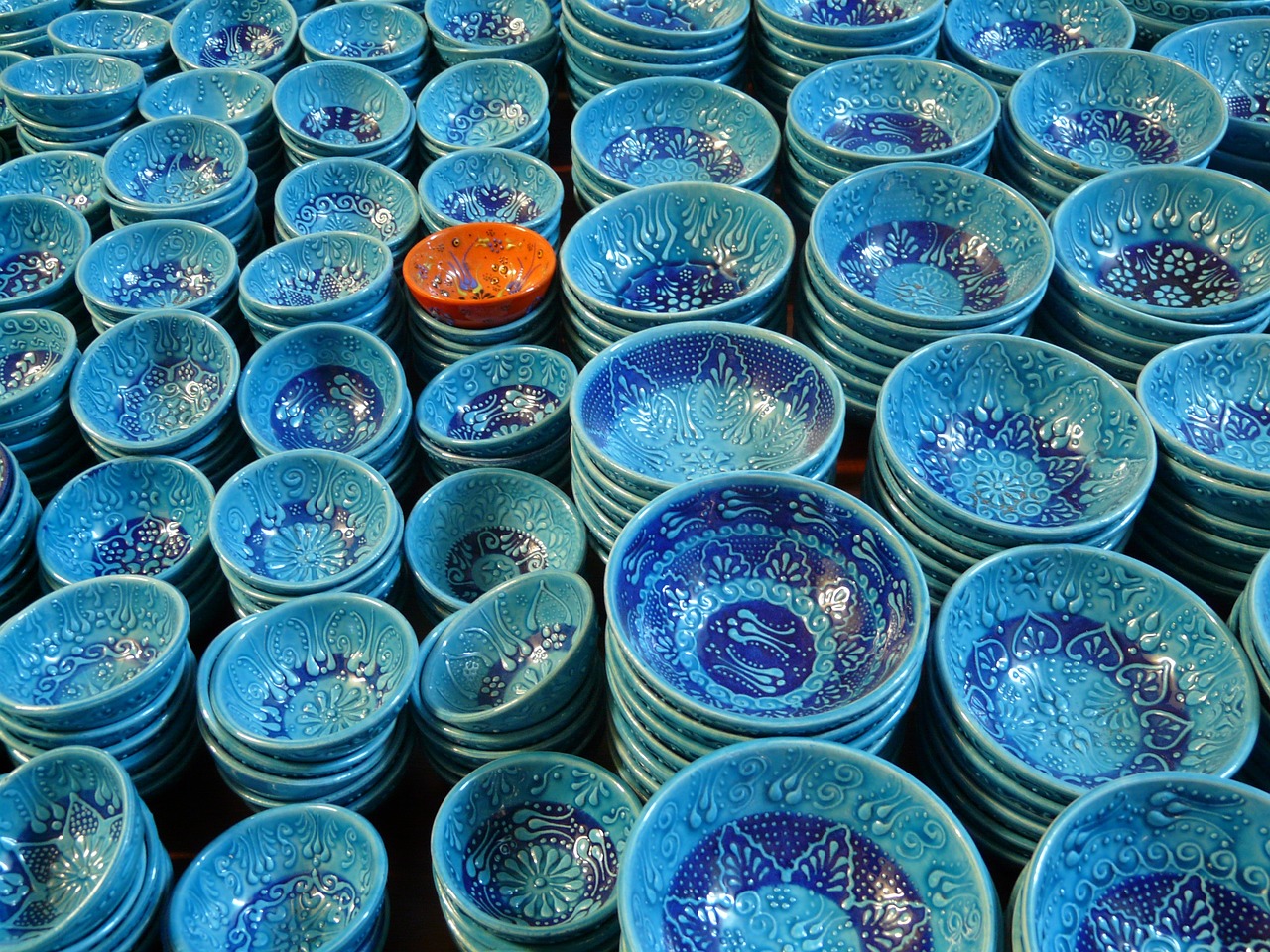
When you step into a pottery class, you're not just entering a space filled with clay and tools; you're stepping into a vibrant community where creativity flourishes. The act of molding clay doesn’t just shape the material; it also shapes connections between people. Imagine sitting side by side with someone, each of you working on your own piece, yet sharing the same passion for creation. This shared experience fosters a unique bond that can lead to lasting friendships.
In pottery classes, the atmosphere is often filled with laughter, encouragement, and the occasional mishap that leads to a funny story. These moments create a tapestry of memories that strengthen relationships. When participants collaborate on projects, they discover the beauty of teamwork. As they blend their ideas and techniques, they not only create beautiful pottery but also build trust and camaraderie. It’s like a dance, where each participant learns to move in harmony with the others, resulting in a creation that reflects their collective spirit.
Furthermore, pottery classes often encourage open discussions about creativity and personal experiences. Participants share their stories, struggles, and triumphs, leading to deeper connections. This exchange of ideas can be incredibly enriching, as it opens doors to understanding different perspectives and backgrounds. It’s a reminder that everyone has a story to tell, and through clay, these stories can be expressed and appreciated.
Moreover, the communal aspect of pottery extends beyond the classroom. Many pottery studios host exhibitions or events where participants can showcase their work. These gatherings not only celebrate individual creativity but also bring the community together. Friends, family, and fellow artists come to admire the creations, fostering a sense of belonging and support. It’s like a big family reunion, where everyone cheers for each other’s accomplishments.
In essence, pottery serves as a powerful tool for building relationships. The act of creating together cultivates a sense of belonging and shared purpose. Whether you’re a seasoned potter or a complete novice, the connections you make in these classes can be as beautiful as the pieces you create. So, the next time you find yourself at a pottery wheel, remember that you’re not just crafting clay; you’re also molding friendships that can last a lifetime.
- What are the benefits of joining a pottery class?
Joining a pottery class can enhance creativity, reduce stress, and foster social connections with others who share similar interests. - Do I need any prior experience to take a pottery class?
No prior experience is needed! Pottery classes are designed for all skill levels, from beginners to advanced artists. - How can pottery help with emotional expression?
Pottery allows individuals to express their emotions through the tactile process of shaping and molding clay, providing a constructive outlet for feelings. - Can pottery classes improve my mental health?
Yes! Engaging in pottery can promote mindfulness, reduce anxiety, and enhance overall well-being through creative expression.
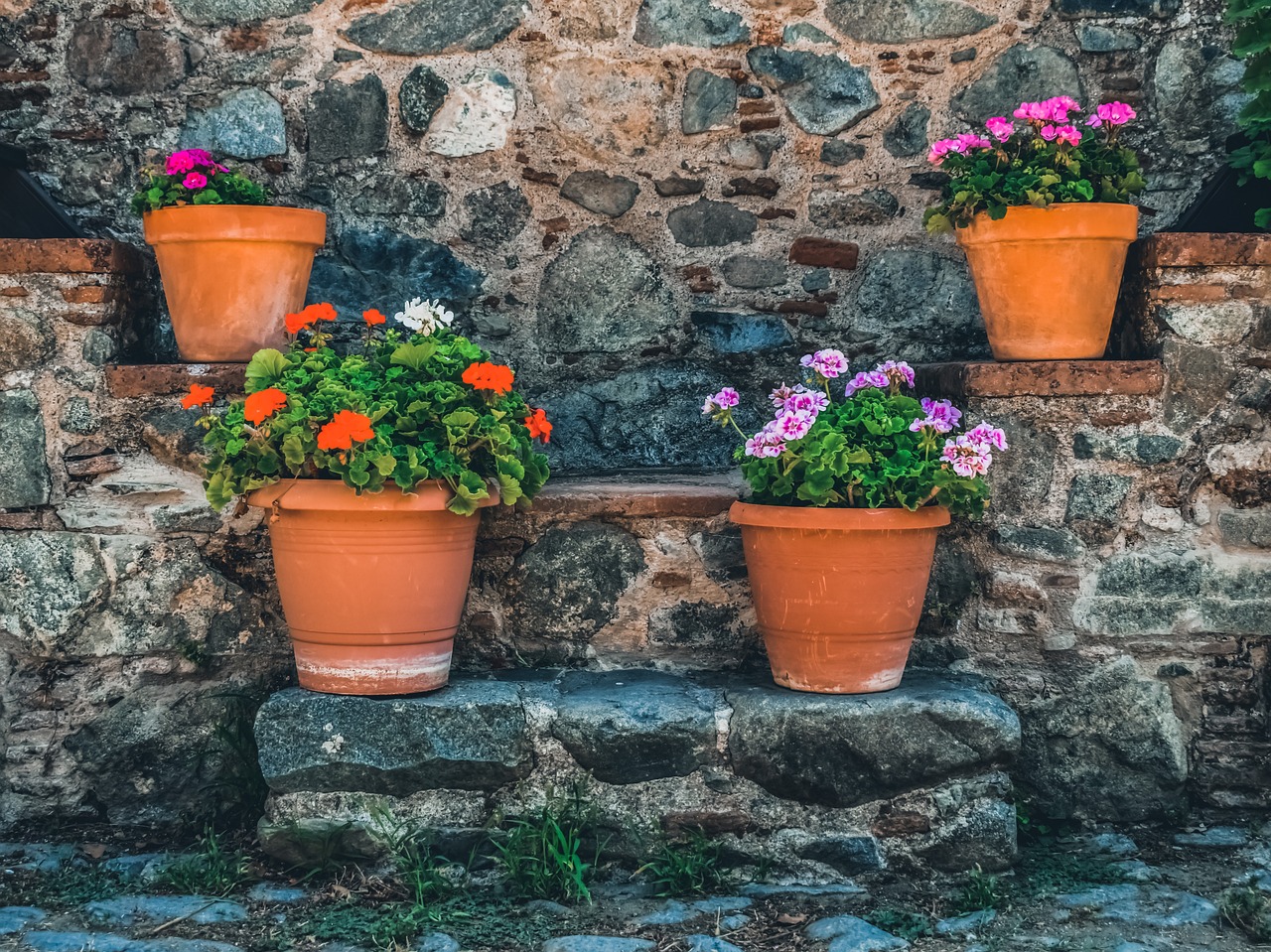
When you step into a pottery studio, it's like entering a sanctuary of creativity and camaraderie. The atmosphere is often infused with a sense of warmth and acceptance that encourages individuals to express themselves without fear of judgment. In these supportive environments, artists of all skill levels come together, creating a rich tapestry of experiences and backgrounds. It's not just about shaping clay; it's about shaping connections. The shared laughter, the occasional mishaps, and the collective joy of creation foster a unique bond among participants.
In pottery studios, the environment is designed to be welcoming and nurturing. Instructors often emphasize the importance of supporting one another, which can lead to profound emotional benefits. The act of creating alongside others can diminish feelings of isolation, making participants feel like they are part of something greater. This sense of belonging can be incredibly healing, especially for those who may struggle with loneliness or anxiety. As you mold the clay, you're also molding friendships, creating a network of support that extends beyond the studio walls.
Moreover, the physical space of a pottery studio plays a crucial role in fostering a supportive environment. With its open layout, natural light, and abundance of tools, it invites exploration and experimentation. Participants are encouraged to try new techniques and share their successes and failures, reinforcing the idea that every piece, regardless of its outcome, has value. This is a powerful lesson in resilience and self-acceptance, as individuals learn to appreciate the journey of creation rather than fixating solely on the end result.
Additionally, the social dynamics in pottery classes can be incredibly enriching. When participants collaborate on projects or engage in group discussions, they not only learn from each other but also build a sense of trust and camaraderie. This collaborative spirit can lead to a positive feedback loop where individuals feel empowered to take risks and push their creative boundaries. For many, this supportive atmosphere is what makes pottery more than just a hobby; it becomes a vital part of their mental and emotional wellness journey.
In summary, pottery studios are not merely places to create art; they are communities that nurture personal growth and emotional healing. By fostering supportive environments where individuals can connect, share, and learn, these studios play a pivotal role in enhancing the therapeutic benefits of pottery. Whether you're a seasoned potter or a curious beginner, the connections you forge in these studios can be as transformative as the pieces you create.
- What are the benefits of joining a pottery class? Joining a pottery class can enhance your creativity, provide stress relief, and help you build connections with like-minded individuals.
- Do I need prior experience to participate in pottery classes? No, pottery classes are designed for all skill levels, from beginners to advanced potters.
- How can pottery help with emotional expression? The tactile nature of clay allows individuals to express their emotions physically, providing a constructive outlet for feelings.
- What should I expect in a typical pottery class? Expect a welcoming atmosphere, hands-on instruction, and plenty of opportunities to create and collaborate with others.
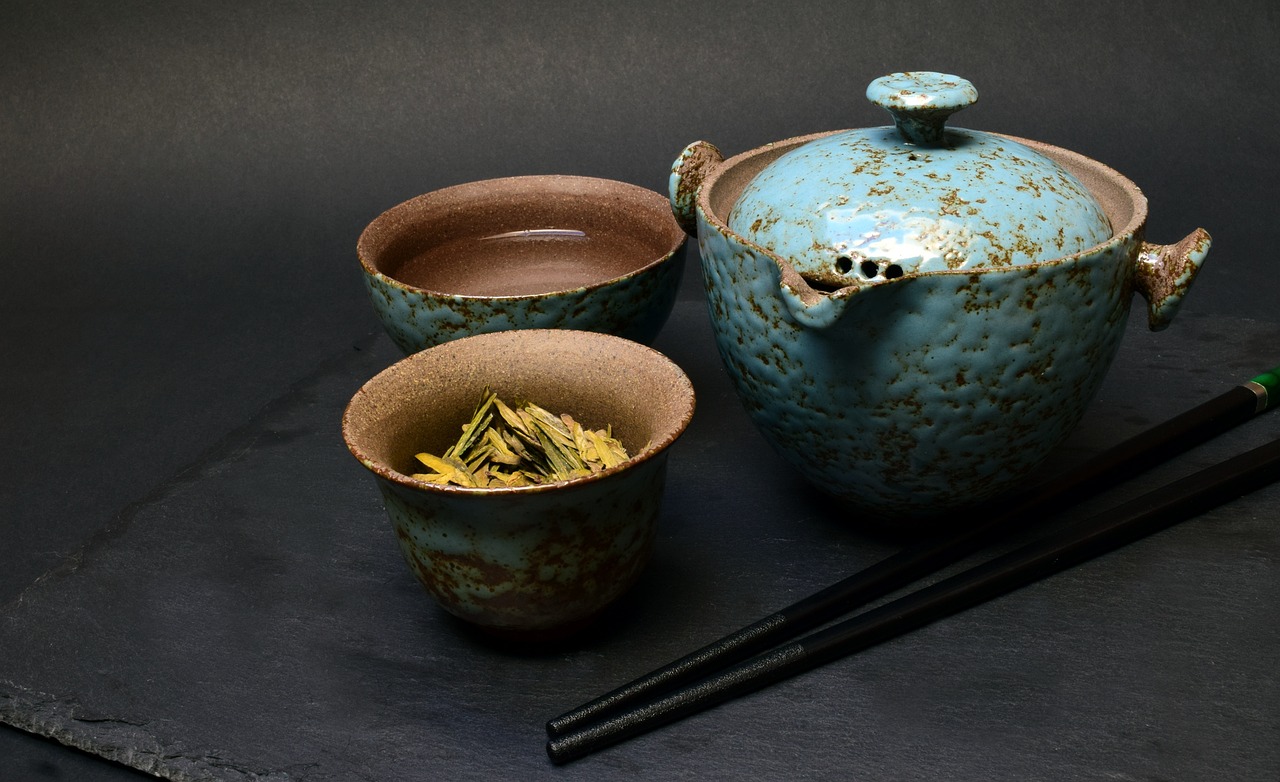
Pottery as a Form of Mindful Expression
When you think about pottery, what comes to mind? Perhaps it’s the image of a potter skillfully shaping clay on a spinning wheel, or maybe it’s the vibrant colors of glazed ceramic pieces displayed in a gallery. But beyond the aesthetic appeal, pottery serves as a profound medium for mindful expression. It’s not just about creating beautiful objects; it’s about the journey of self-discovery and emotional exploration that unfolds during the process.
Engaging with clay offers a unique opportunity to communicate feelings that may be difficult to articulate. Every pinch, roll, and mold becomes a form of non-verbal dialogue, allowing the creator to express their inner thoughts and emotions. For many, this act of creation can be a therapeutic release, where the clay absorbs the stresses of the day, transforming negative energy into something tangible and beautiful. Just as a sculptor chisels away at stone, pottery allows individuals to chip away at their emotional barriers, revealing deeper layers of self-awareness.
The tactile nature of clay is inherently grounding. As you sit at the wheel or knead the clay with your hands, you become acutely aware of the present moment. This physical connection fosters a sense of mindfulness, where worries about the past or future fade away, leaving only the sensation of the cool, pliable material in your hands. It’s akin to meditation; you find yourself immersed in the rhythm of creation, where every movement becomes a dance of intention and focus.
Moreover, the designs and forms that emerge from your hands can serve as a visual representation of your emotional state. Whether it’s a lopsided bowl that symbolizes imperfection or an intricate vase that reflects your vibrant spirit, each piece tells a story. This act of creation not only allows for personal expression but also invites introspection. You might find yourself asking questions like, “What does this shape mean to me?” or “How do the colors I choose reflect my mood?” Through pottery, you can explore your identity and emotions in a safe and constructive way.
In addition, pottery can become a form of documentation of your personal growth. Each creation marks a moment in time, capturing your evolving thoughts and feelings. As you look back on your pieces, you can trace your emotional journey, recognizing patterns and changes in your mindset. It’s a powerful reminder of how far you’ve come, much like flipping through the pages of a diary filled with experiences and reflections.
Ultimately, pottery is more than just a craft; it’s a transformative practice that encourages individuals to tap into their creativity and emotions. It provides a space for exploration, healing, and connection to oneself. So, whether you’re a seasoned potter or a curious beginner, remember that every piece you create holds the potential for personal expression and mindful reflection.
- What materials do I need to start pottery? You will need clay, a potter's wheel (optional), tools for shaping, and a kiln for firing your pieces.
- Can pottery help with anxiety? Yes, many people find that the process of working with clay helps to reduce anxiety and promote relaxation.
- Do I need experience to take a pottery class? No, pottery classes are available for all skill levels, from beginners to advanced.
- How can I find a pottery class near me? You can search online for local art studios or community centers that offer pottery classes.
Frequently Asked Questions
- What are the therapeutic benefits of pottery creation?
Engaging in pottery can significantly reduce stress and anxiety levels. The process of molding and shaping clay requires focus, allowing individuals to escape from their daily worries. This hands-on activity promotes relaxation and can even enhance overall well-being by providing a sense of accomplishment.
- How does pottery encourage mindfulness?
Pottery encourages mindfulness by immersing individuals in the present moment. The tactile experience of working with clay can create a meditative state, allowing one to forget distractions and fully engage with the creative process. This heightened awareness can lead to a deeper understanding of oneself and one's emotions.
- Can pottery help with emotional release?
Absolutely! Working with clay can serve as a powerful outlet for emotional expression. The act of shaping and molding can help individuals process their feelings, making it a constructive way to work through difficult emotions or experiences.
- What social benefits can I gain from pottery classes?
Pottery classes foster a sense of community and connection. By participating in these classes, individuals can meet like-minded people, share experiences, and build friendships through collaborative projects. This social interaction can enhance emotional support and strengthen relationships.
- How do pottery studios create supportive environments?
Many pottery studios cultivate a welcoming atmosphere that promotes encouragement and collaboration. This supportive environment can significantly enhance the healing process for participants, making it easier to express oneself creatively and emotionally.
- In what ways can pottery be a form of mindful expression?
Pottery allows individuals to express their thoughts and emotions through design and form. Each creation can serve as a reflection of one’s inner feelings, promoting introspection and understanding. This personal expression through art can be incredibly therapeutic and fulfilling.



















